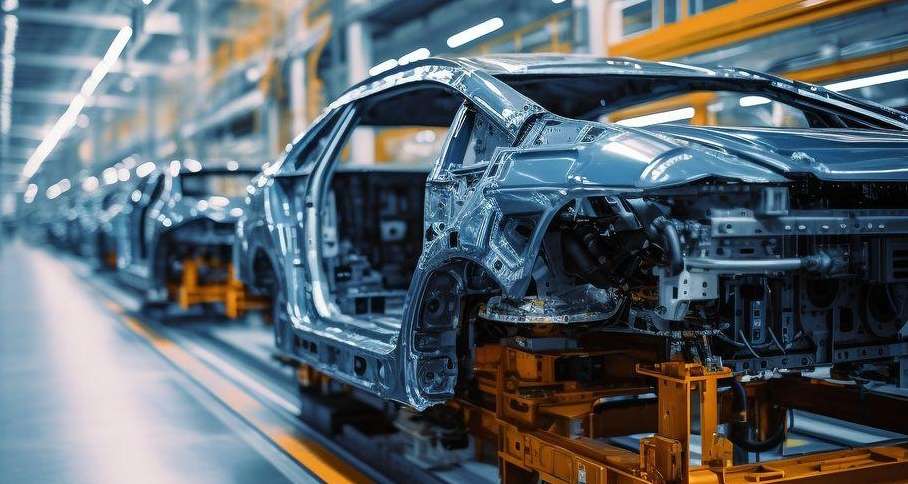- October 24, 2024
- Investment News
BYD's Smart Technology Push as Sales Leader
Advertisements
The automotive landscape in China has recently witnessed a seismic shift, with BYD's sales reaching an impressive 4.27 million units in 2024, thus positioning itself as the leader in the Chinese automotive market, surpassing the well-established SAIC Motor Corporation. However, this new title of "best-selling automaker" does not come without its attendant challenges and anxieties, particularly as the industry pivots toward the second phase of intelligence-driven vehicle technology. Recognizing this, BYD is making substantial strides in enhancing its smart driving capabilities, a move seen as crucial for maintaining its competitive edge.
Back in March 2023, Wang Chuanfu, the chairman of BYD, expressed skepticism regarding the effectiveness of autonomous driving technologies, referring to them as being largely "hollow." Nevertheless, less than four months later, BYD made a notable entrance into the highly competitive world of intelligent driving technology, setting initiatives into motion that would solidify its commitment to innovation and consumer satisfaction.
The unveiling of the "Eye of the God" intelligent driving system in July 2023 marked a significant milestone. By the end of 2024, BYD had expanded its coverage to facilitate the launch of their 'City No Map Autonomous Navigation (CNOA)' features across multiple urban locales through over-the-air (OTA) updates. This rapid development from concept to operational functionality—in less than 18 months—is a testament to BYD’s efficiency in the realm of technological advancement.
During the 2024 BYD Dream Day event, Wang Chuanfu made a bold announcement regarding the integration of advanced intelligent driving systems into their vehicles. He stated that models priced over 200,000 yuan will offer optional advanced smart driving features, while those above 300,000 yuan would come equipped with these systems as standard. Currently, BYD’s high-tech driving systems are available in several models, including the Yangwang U8, Denza Z9GT, Denza N7, Han EV, Song L EV, and the Hai Lion 07 EV, demonstrating a diverse lineup catered to various consumer needs.

Recently, a vehicle demonstration event organized by BYD enabled journalists to experience firsthand the advanced features of the Yangwang U8’s full-scene automatic parking functionality and the CNOA system in the Denza Z9GT. The offerings in parking technology, particularly the 'Easy Three-Way' and 'Easy Four-Way' functions, showcased BYD's engineering competence. The former allows vehicles to navigate and park using controlled rotation powered by dual motors, while the latter manages to squeeze into tight parking spaces thanks to independent all-wheel drive capabilities.
Furthermore, the CNOA functionality exhibited remarkable proficiency in handling complex traffic scenarios, including navigating through intricate intersections, obeying traffic signals, real-time countdowns, overtaking, obstacle avoidance, autonomous lane changing, and yielding to pedestrians and cyclists. Such capabilities indicate BYD's commitment to safety and efficiency.
Interestingly, in crafting their high-level intelligent driving solutions, BYD has chosen a middle path, avoiding the controversies surrounding debates on whether to use LiDAR or purely camera-based vision systems. Instead, they are offering both options, catering to a broader spectrum of consumer preferences and driving safety needs.
Take, for instance, the Denza Z9GT model. It is powered by a single Orin X chip, boasting significant processing capabilities of 254 TOPS. Equipped with 31 intelligent driving sensors—including two LiDARs, five millimeter-wave radars, twelve ultrasonic sensors, and twelve high-definition cameras—this model aims to deliver comprehensive environmental awareness. Insiders have shared that BYD’s selective approach aims to strike a balance between performance and safety while addressing the diverse demands of car owners.
In this arena, the end-to-end development capability of vehicle manufacturers has emerged as a focal point of competition. Rivals such as Xpeng, Huawei, Li Auto, and NIO have already showcased extensive end-to-end technological competencies, each vying for supremacy in this research-intensive field. Liu Deshen, an expert in intelligent driving systems at BYD’s new technology research institute, revealed that while BYD currently employs a two-stage end-to-end model, they plan to transition to an advanced one-model system in the forthcoming generation of vehicles.
As for the technology shaped by BYD's "Eye of the God" system, it is constructed upon the Xuanji architecture, tapping into a self-developed high-performance computing platform and an end-to-end algorithm framework that can monitor car conditions, driver status, and other critical data in real-time. This results in a powerful perception capability that operates under all conditions throughout varied regions.
Currently, BYD’s "Eye of the God" intelligent driving assistance system has reached the BAS 3.0+ iteration. Unlike traditional systems primarily reliant on sensors, BYD’s integration enhances data acquisition through additional sensors—like rotating and tire pressure sensors—feeding this data into a sophisticated perception network for predictive analysis, decision-making, and control strategies.
BYD’s commitment to advancing intelligent driving technologies also echoes through their significant investment in research and development. In the first three quarters of this year, R&D spending escalated by an impressive 33.6%, totaling 33.32 billion yuan. Looking ahead to November 2024, Wang Chuanfu pledged a staggering investment of 100 billion yuan aimed at the fusion of artificial intelligence with automotive innovation, propelling the vision of comprehensive vehicle intelligence forward.
In addition to its internal efforts, BYD has established collaborative endeavors with esteemed technology partners such as Huawei, Momenta, and Horizon Robotics. Notably, in 2021, they formed a joint venture with Momenta, and by late 2024, models equipped with Huawei’s Qian Kun intelligent driving ADS 3.0 will hit the market, keeping BYD at the cutting edge of industry developments.
As the automotive competition in 2024 veers sharply toward intelligent driving innovations, various manufacturers are unveiling their strategic plans. Chery aims to produce several models equipped with high-level intelligent driving by 2025, while Great Wall anticipates an automatic driving implementation rate exceeding 40% within the same time frame. These projections indicate an intensifying race toward technological supremacy, as Liu Deshen hinted at BYD’s intentions to roll out additional models featuring the "Eye of the God" intelligent driving system in the near future.
- 416 Comments
- 192
- 113